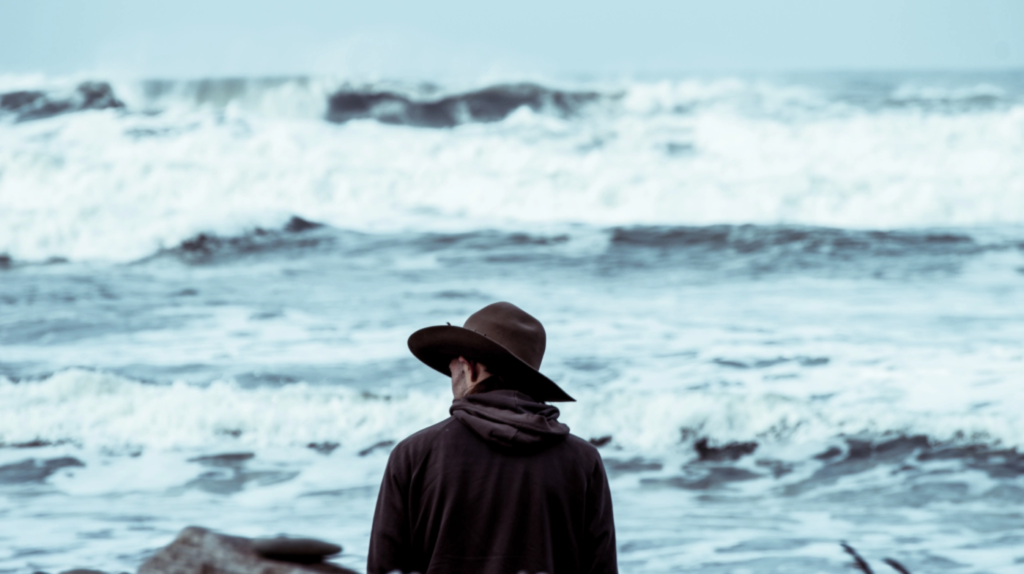
Whoever looks to secure his life for himself will lose it, but whoever loses it will bring it to life.” (Luke 17:33)
Jesus’ words to his students are puzzling. The broader context of these verses is about disaster so sudden and devastating that people working in their fields must not return to their homes. Today, it would be drone strikes and rockets launched into valleys from the high places.
These events won’t be discernible beforehand. You won’t know when this will happen. When the Son of Man comes, there won’t be any confusion. He won’t be “here” or “there.” He’ll be everywhere at once.
Just before the text quoted above, Jesus says, almost as an afterthought, “Remember Lot’s wife!” He doesn’t have to explain; everyone listening knows the story.
Lot’s wife is running with her family out of Sodom, as the sky rains sulphur and brimstone. It’s nature’s equivalent of a rocket attack. Don’t look back, says God. Get out and get away. But she falters, slows, and stops. She turns. She can’t help herself. Everything she’s known and loved is blowing up. Rocks the size of houses are slamming into the city. The canals are boiling and the gardens are burning. Somewhere down there her neighbors are cowering under the relentless carpet bombing of the city. They will all die and she knows it.
So she looks back, partly in anger, partly in compassion, partly through a head-swiveling curiosity. And as the story goes, she turns to a pillar of salt. Whether this is literal or not doesn’t matter. What Jesus asserts with this story is about trust as a way of life.
It’s a radically existential message. It echoes and reinforces his “Take no thought for tomorrow,” and “It’s easier for a camel to go through the eye of a needle than for a rich man to enter into God’s kingdom.” This is hyperbole jacked up to make a point—without trust we’ll always be looking back, frozen in place.
It’s not easy trusting forward when the world is exploding behind us. We want to know what is gaining on us, even if it means losing a step or two. Something about hearing footsteps or growls or the thunderous explosions behind us makes us crazy. We have to look or our eyeballs will swivel around without us.
I used to run on a treadmill at my local gym. I wondered how long I could run without glancing to see when my three-minute sprint was up. The most I could manage was one minute and that took all my willpower. It seems so much longer when you’re running, especially when everything in your head is screaming at you to look.
I kept at it though. I thought it was good discipline. I thought if I could ignore the impulse to bail out and look it might improve other parts of my life. Maybe I could really listen to another person instead of rehearsing my response as they spoke. Maybe I could stifle an impulse buy before I bought something I didn’t need and would regret later. Maybe I wouldn’t obsess over things that had little chance of tripping me up.
Yet I kept thinking about those people who blew past all the signs, thinking they could figure out how to land as they were falling. I kept thinking of stories that show up as a Netflix series about people who ignored the narrow way, the one thing that might have saved them and their civilization. It could have gone another way, but nooo—Jack, here, blithely spurned wise counsel and now we’re all eating turnips and living in caves.
There’s a more ambivalent view of history, one that appeals to people who take an expansive approach to life. This one travels the broad highway rather than the narrow path. All roads, it says, lead to Rome; all paths meet at the top of the mountain. There is room for all in the Kingdom; the only ones who won’t be there are the ones who choose against it. No one decision in life determines your future. Everything we do can be salvaged in some way. There is always, always redemption.
Unfortunately, I can see both directions at once: up the narrow ridge that features cataclysms to the left and the right and down in the valley where the living is easy and everyone is welcome. The graduation speaker for my high school class summed up both these views in one sentence: Be conservative with yourself and liberal toward all others. He wasn’t speaking politically, but socially and spiritually. He spoke from experience, for he was one of two faculty of color at the college my prep school was affiliated with. His sons were the only Asian kids in the high school. He knew firsthand about the narrow way. He had learned to forgive the goodhearted but irrepressibly ignorant people around him.
There’s more than one way to lose your life. The way I’m most familiar with is treading the narrow path and expecting everyone else to do the same. I’ve gone through phases in my spiritual life. As a teenaged convert, my first phase was to rejoice in my salvation and annoy the hell out of my undecided friends. I felt free to impose my faith on them. The second phase immersed me in world faiths and a broader view of God in the world. I’m in the third phase now. I believe God is working with me, as God does with everyone. When I respond in trust, God is able to show me my true self. This is a constant process of dying and rising. I weary myself sometimes. But God is infinitely patient, infinitely hopeful of my prospects. And I can live with that.
Photo by Tyler Milligan on Unsplash